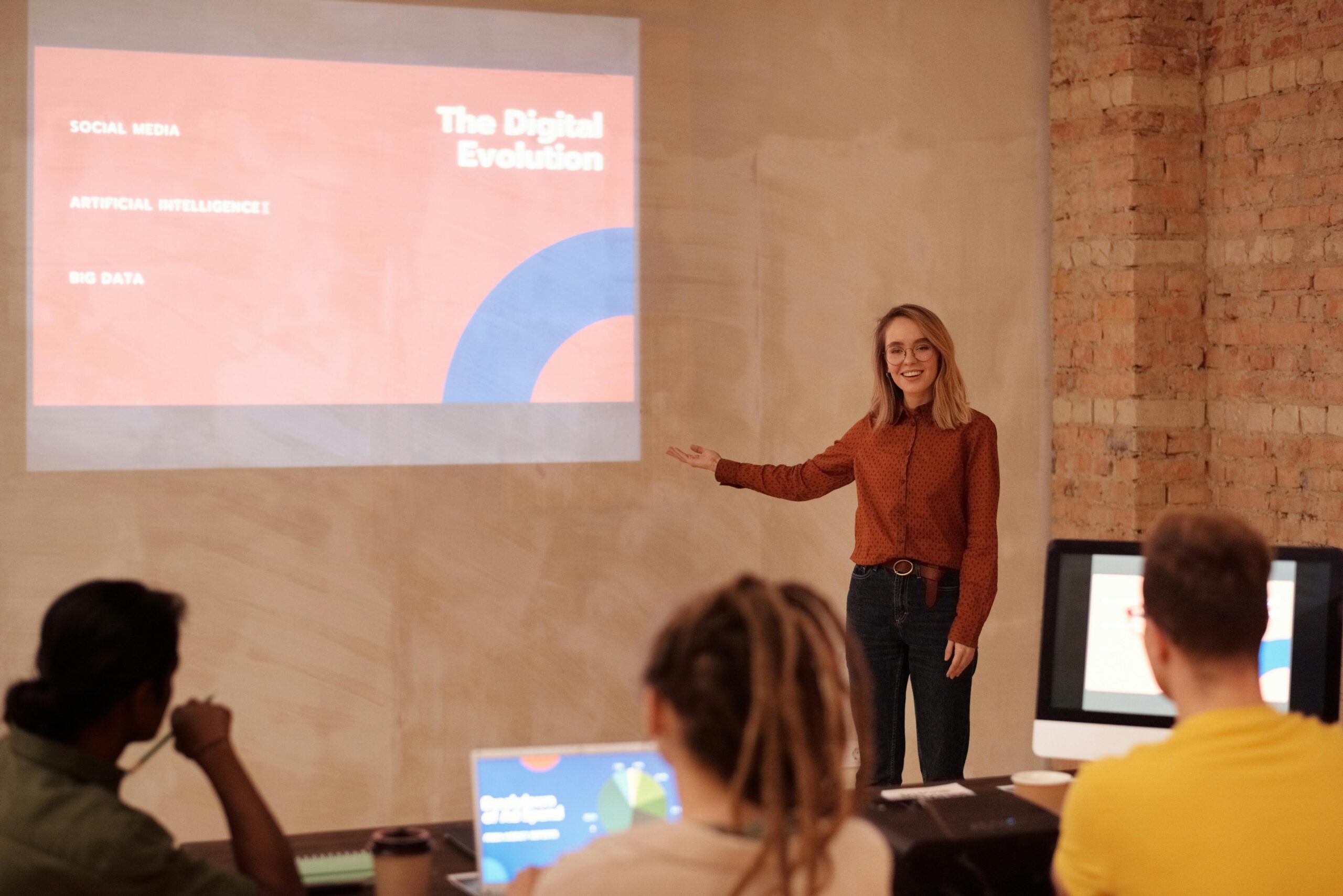Leadership psychology has become a cornerstone of organizational success, blending human behavior insights with strategic management to create thriving workplace environments.
In today’s rapidly evolving business landscape, understanding the psychological underpinnings of effective leadership isn’t just advantageous—it’s essential. The modern workplace demands leaders who can navigate complexity, inspire diverse teams, and drive meaningful change while maintaining psychological well-being across their organizations. This comprehensive exploration delves into the transformative power of leadership psychology and provides actionable strategies for contemporary business success.
🧠 The Foundation of Leadership Psychology
Leadership psychology examines the mental processes, behaviors, and emotional patterns that distinguish exceptional leaders from average managers. This interdisciplinary field combines principles from cognitive psychology, behavioral science, emotional intelligence, and organizational development to create a holistic understanding of what makes leadership truly effective.
At its core, leadership psychology recognizes that technical skills and business acumen alone cannot guarantee success. The ability to understand human motivation, manage group dynamics, and create psychological safety within teams has become equally critical. Research consistently demonstrates that organizations led by psychologically-informed leaders experience higher employee engagement, reduced turnover, and improved bottom-line results.
The neuroscience behind leadership reveals fascinating insights into how our brains respond to authority, collaboration, and change. When leaders understand concepts like the threat-reward response system, mirror neurons, and neuroplasticity, they can craft approaches that work with—rather than against—our natural psychological wiring.
Understanding the Psychological Profiles of Effective Leaders 💼
Successful leaders in modern organizations share certain psychological characteristics that enable them to navigate challenges effectively. Self-awareness stands as the foundational trait, allowing leaders to recognize their own biases, triggers, and growth areas. This metacognitive ability creates space for continuous improvement and authentic leadership.
Emotional regulation represents another critical psychological competency. Leaders who can manage their own emotional responses during high-pressure situations create stability for their teams. This doesn’t mean suppressing emotions but rather channeling them constructively and modeling healthy emotional processing.
Cognitive flexibility enables leaders to adapt their thinking patterns when circumstances change. In volatile business environments, the capacity to pivot strategies, reconsider assumptions, and embrace new perspectives becomes invaluable. Leaders with rigid thinking patterns struggle to inspire innovation or navigate disruption effectively.
Empathy has emerged from a “soft skill” to a strategic leadership capability. Understanding team members’ perspectives, challenges, and motivations allows leaders to tailor their approaches, provide meaningful support, and build genuine connections that foster loyalty and commitment.
The Role of Personality in Leadership Effectiveness
While there’s no single “leadership personality,” certain traits correlate with effectiveness across different contexts. Conscientiousness predicts follow-through and reliability, while openness to experience supports innovation and learning agility. Extraversion can facilitate networking and public-facing roles, though many successful leaders are introverts who leverage different strengths.
The key lies not in molding oneself to a predetermined personality template but in understanding one’s natural tendencies and developing compensating strategies where needed. Psychological assessments like the Myers-Briggs Type Indicator, DISC profiles, or the Big Five personality traits can provide valuable self-insight when used appropriately.
Strategies for Developing Leadership Psychological Intelligence 🎯
Developing psychological intelligence as a leader requires intentional practice and ongoing commitment. The journey begins with comprehensive self-assessment—understanding your leadership style, identifying blind spots, and recognizing patterns in how you respond to stress, conflict, and uncertainty.
Mindfulness practices have gained significant traction in leadership development for good reason. Regular meditation, reflective journaling, or contemplative practices enhance self-awareness, improve emotional regulation, and increase cognitive flexibility. Even brief daily practices can yield measurable improvements in leadership effectiveness over time.
Seeking diverse feedback represents another powerful development strategy. Creating systems for 360-degree feedback, engaging executive coaches, or participating in peer leadership groups provides multiple perspectives on your impact. The willingness to hear difficult truths and act on constructive criticism distinguishes leaders committed to growth.
Building Emotional Intelligence Systematically
Emotional intelligence encompasses self-awareness, self-regulation, social awareness, and relationship management. Developing these competencies requires targeted effort across multiple dimensions:
- Practice labeling emotions accurately as they arise, increasing your emotional vocabulary beyond basic feelings
- Identify physical sensations associated with different emotional states to recognize them earlier
- Develop pause techniques that create space between stimulus and response during triggering situations
- Cultivate curiosity about others’ experiences through active listening and perspective-taking exercises
- Study nonverbal communication to better read emotional undercurrents in interactions
- Regularly reflect on relationship patterns to identify areas for improvement in how you connect with others
Creating Psychologically Safe Work Environments 🛡️
Psychological safety—the belief that one can take interpersonal risks without fear of negative consequences—has been identified by Google’s Project Aristotle and numerous other studies as the single most important factor in team effectiveness. Leaders bear primary responsibility for establishing and maintaining this critical condition.
Creating psychological safety begins with modeling vulnerability. When leaders acknowledge mistakes, admit uncertainty, and ask for help, they signal that imperfection is acceptable. This permission structure encourages team members to bring their full selves to work, including their questions, concerns, and innovative ideas.
Responding constructively to bad news or dissenting opinions reinforces psychological safety. Leaders must resist defensive reactions when hearing information they don’t want to hear. Instead, expressing appreciation for honesty and focusing on problem-solving rather than blame encourages continued transparency.
Establishing clear norms around respectful disagreement allows healthy conflict while preventing toxic behaviors. When teams understand that challenging ideas is welcome but personal attacks are not, they can engage in the productive friction that drives innovation without fear of relationship damage.
Addressing Psychological Safety Breaches
Even in high-functioning teams, psychological safety can be compromised through careless comments, exclusionary behaviors, or leadership inconsistency. Addressing breaches quickly and decisively demonstrates commitment to maintaining trust. This includes acknowledging the harm, implementing corrective actions, and following up to ensure resolution.
Motivation Theory in Leadership Practice 🚀
Understanding what drives human motivation enables leaders to create conditions where team members thrive. Self-Determination Theory identifies three fundamental psychological needs: autonomy, competence, and relatedness. Leaders who address these needs systematically unlock intrinsic motivation far more powerful than external rewards alone.
Autonomy involves providing meaningful choices about how work gets done. Micromanagement destroys motivation by signaling distrust and removing agency. Instead, effective leaders establish clear outcomes while allowing flexibility in approach, trusting team members’ judgment and expertise.
Competence relates to the need for growth, mastery, and effectiveness. Leaders support this need by providing appropriate challenges, constructive feedback, and development opportunities. When work is too easy, boredom results; when it’s overwhelmingly difficult, anxiety takes over. The sweet spot—slightly beyond current capabilities—promotes engagement and skill development.
Relatedness addresses our fundamental need for connection and belonging. Leaders foster this through team-building activities, collaborative projects, and creating opportunities for meaningful relationships. Recognition of individual contributions within the context of team success satisfies both personal and collective needs.
Beyond Carrots and Sticks
Traditional motivation approaches based purely on rewards and punishments have limited effectiveness and can actually undermine intrinsic motivation. Leaders skilled in psychological principles understand that purpose, mastery, and autonomy create sustainable engagement that external incentives alone cannot match.
Navigating Change Through Psychological Awareness 🔄
Change initiatives fail at alarming rates, often due to insufficient attention to the psychological dimensions of transition. Human brains are wired to resist uncertainty and perceive change as threat, triggering stress responses that undermine rational decision-making and openness to new approaches.
Effective change leadership begins with acknowledging the psychological reality of loss. Even positive changes involve letting go of familiar patterns, and leaders who dismiss or minimize this experience create resistance. Providing space for people to process endings before fully embracing beginnings increases adoption rates significantly.
Communication during change must address both rational and emotional concerns. While explaining the business case matters, equally important is addressing fears, providing reassurance, and painting vivid pictures of the positive future state. Stories and metaphors often prove more persuasive than data alone when dealing with emotional resistance.
Involving people in shaping change increases buy-in through psychological ownership. When team members contribute ideas, voice concerns, and see their input reflected in final plans, they develop investment in success rather than passive compliance or active resistance.
The Psychology of Decision-Making and Bias Management 🤔
Leadership involves countless decisions, from strategic direction to daily operational choices. Understanding cognitive biases—systematic errors in thinking that affect judgment—enables leaders to implement safeguards that improve decision quality.
Confirmation bias leads us to seek information supporting existing beliefs while dismissing contradictory evidence. Leaders combat this by actively seeking disconfirming data, appointing “devil’s advocates,” and rewarding those who respectfully challenge prevailing assumptions.
Anchoring bias causes disproportionate weight on initial information encountered. Starting salary negotiations, project timeline discussions, or strategic planning sessions with carefully chosen anchors shapes subsequent deliberations. Awareness of this phenomenon allows leaders to use it ethically while protecting against manipulation.
Groupthink—the tendency for cohesive groups to suppress dissent in favor of consensus—has led to numerous organizational failures. Leaders prevent groupthink by encouraging diverse perspectives, protecting minority viewpoints, and separating idea generation from evaluation.
Structured Decision-Making Processes
Implementing systematic decision frameworks reduces bias impact. Pre-mortems (imagining future failure and working backward to identify causes), decision journals (recording reasoning for later review), and explicit criteria weighting (determining importance of factors before evaluating options) all improve outcomes by introducing discipline into naturally flawed cognitive processes.
Building Resilience in Yourself and Your Team 💪
The ability to recover from setbacks, adapt to adversity, and maintain effectiveness under pressure distinguishes sustainable leadership from burnout trajectories. Resilience isn’t an innate trait but rather a set of learnable skills and practices that buffer against stress.
Cognitive reframing—interpreting situations in ways that preserve agency and possibility—forms the foundation of psychological resilience. Leaders who view challenges as opportunities for growth rather than threats to survival model adaptive thinking patterns their teams emulate. This doesn’t mean toxic positivity that denies reality but rather finding empowering interpretations within difficult circumstances.
Social support networks provide essential resilience infrastructure. Leaders need confidants, mentors, and peers with whom they can process challenges, gain perspective, and receive encouragement. Similarly, fostering strong connections within teams creates mutual support systems that help members weather individual and collective difficulties.
Stress management practices preserve the physical and mental resources necessary for sustained performance. Exercise, sleep, nutrition, and recovery time aren’t optional luxuries but rather essential investments in leadership capacity. Leaders who model healthy boundaries and self-care give permission for others to prioritize their well-being.
Leveraging Technology for Leadership Psychology 📱
Digital tools increasingly support leadership development and psychological awareness. Feedback platforms, pulse survey tools, and communication analytics provide data-informed insights into team dynamics and leadership impact. Meditation apps, productivity systems, and habit trackers help leaders implement psychological strategies consistently.
However, technology serves psychology rather than replacing it. The most sophisticated tools cannot substitute for genuine human connection, thoughtful reflection, or the wisdom gained through experience. Leaders integrate technology strategically while preserving the irreplaceable human elements of effective leadership.
Measuring Leadership Psychological Impact 📊
What gets measured gets managed, and leadership psychology is no exception. While some outcomes resist easy quantification, various metrics illuminate psychological dimensions of leadership effectiveness:
| Psychological Dimension | Measurement Approach | Key Indicators |
|---|---|---|
| Psychological Safety | Team surveys, speaking-up rates | Willingness to voice concerns, idea generation frequency |
| Emotional Intelligence | 360-degree feedback, behavioral observation | Relationship quality, conflict resolution effectiveness |
| Employee Engagement | Standardized assessments, retention rates | Discretionary effort, voluntary turnover |
| Change Readiness | Adoption metrics, resistance indicators | Implementation speed, sustained behavioral change |
Regular assessment creates accountability while tracking progress over time. However, leaders must balance measurement with authenticity—becoming so focused on metrics that genuine human connection suffers defeats the purpose entirely.

The Continuous Journey of Psychological Leadership Development 🌱
Leadership psychology isn’t a destination but an ongoing journey of learning, practice, and refinement. The most effective leaders embrace a growth mindset toward their own development, recognizing that mastery requires sustained effort across years and decades rather than quick fixes or one-time interventions.
Investing in leadership psychology pays dividends across individual, team, and organizational levels. Leaders who understand psychological principles create environments where people flourish, innovation thrives, and business objectives are achieved through rather than at the expense of human well-being. This integration of performance and humanity represents the future of organizational leadership.
The strategies outlined here—from developing emotional intelligence to creating psychological safety, from understanding motivation to managing cognitive biases—provide a comprehensive framework for leadership excellence. Implementation requires commitment, patience, and willingness to confront uncomfortable truths about oneself. Yet for leaders genuinely dedicated to maximizing their positive impact, few investments yield greater returns than developing psychological sophistication.
As workplaces continue evolving with remote arrangements, generational shifts, technological disruption, and societal changes, the psychological dimensions of leadership become increasingly central to success. Leaders who master these capabilities position themselves and their organizations to thrive regardless of external circumstances, building resilient cultures that attract talent, drive innovation, and achieve sustainable results.
The power of leadership psychology lies not in manipulation or control but in genuine understanding of human nature applied with integrity and care. When leaders commit to this path, they transform not only organizational outcomes but also the lives of everyone they touch, creating ripples of positive impact that extend far beyond immediate business objectives. This is the true measure of leadership success in the modern workplace.
Toni Santos is a future-of-work researcher and social innovation writer exploring how technology, culture, and global mobility are redefining what it means to work and thrive in the 21st century. Through his studies on automation, digital nomadism, and workforce transformation, Toni examines the balance between progress, adaptability, and human purpose in a rapidly changing world. Passionate about remote collaboration systems and digital inclusion, Toni focuses on how emerging tools and global connectivity empower individuals to build meaningful, flexible, and resilient careers. His work highlights how automation and new work models can coexist with creativity, empathy, and social value. Blending sociology, economics, and digital strategy, Toni writes about the human side of innovation — helping readers understand not only where work is heading, but how to align with its transformation responsibly and purposefully. His work is a tribute to: The evolving relationship between automation and human employment The rise of global, location-independent lifestyles The power of resilience and adaptability in the modern workforce Whether you are a freelancer, remote leader, or curious observer of the new economy, Toni Santos invites you to explore the future of work — one idea, one connection, one transformation at a time.




